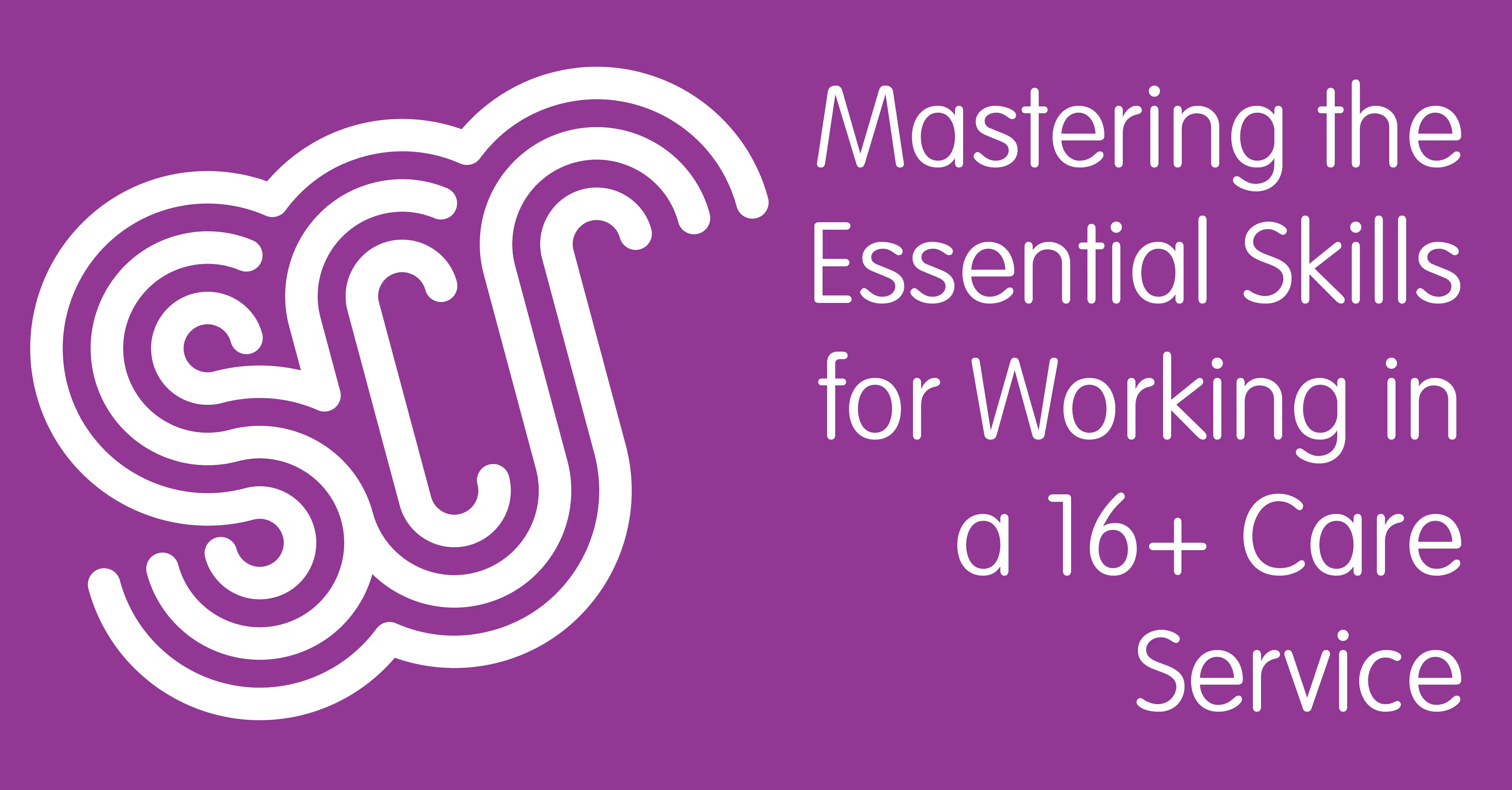
Mastering the Essential Skills for Working in a 16+ Care Service
Mastering the Essential Skills for Working in a 16+ Care Service
Are you looking to excel in a career in the 16+ care service? Mastering the essential skills for working in this dynamic field is crucial for success. From providing support to young adults to facilitating their personal development, a solid skill set is key.
In this article, we will explore the specific abilities you need to thrive in a 16+ care service. Whether you are a support worker, key worker, or manager, this insightful guide will equip you with the knowledge to excel in your role and make a positive impact on the lives of those you work with.
From effective communication and empathy to crisis management and documentation, we will cover a wide range of skills necessary for the job.
Discover how to effectively communicate with young adults, build strong relationships, manage challenging behaviors, and create a safe and inclusive environment.
Are you ready to enhance your skills and make a meaningful difference? Let’s dive into the essential skills for working in a 16+ care service.
The importance of essential skills in a 16+ care service
Working in a 16+ care service requires a unique set of skills that go beyond just technical knowledge. These essential skills are the foundation for providing high-quality care and support to young adults, ensuring their personal growth, and fostering an inclusive environment. In the 16+ care sector, the young people you work with are at a crucial stage of their lives, transitioning into adulthood and facing various challenges. As a professional in this field, your ability to navigate these complexities and empower the individuals in your care is paramount.
Developing a comprehensive skill set is vital for success in a 16+ care service. From effective communication and empathy to conflict resolution and cultural sensitivity, these skills enable you to build meaningful connections, understand the unique needs of each young person, and create a safe and supportive environment. By mastering these essential skills, you can positively impact the lives of the young adults you work with, guiding them towards independence, personal development, and a brighter future.
Furthermore, the 16+ care service is a dynamic and ever-evolving field, requiring professionals to stay adaptable and continuously learn. Acquiring new skills and staying up-to-date with industry best practices is crucial for delivering the most effective support and ensuring the well-being of the young people in your care. This commitment to professional development not only enhances your own abilities but also sets an example for the individuals you work with, inspiring them to embrace lifelong learning and personal growth.
Communication skills in a 16+ care service
Effective communication is the cornerstone of a successful 16+ care service. As a professional in this field, your ability to engage with young adults, listen actively, and convey information clearly and empathetically is essential. Strong communication skills allow you to build trust, foster open dialogue, and ensure that the young people in your care feel heard and understood.
When working with young adults, it’s crucial to adapt your communication style to their individual needs and preferences. This may involve using simple, straightforward language, encouraging open-ended questions, and being mindful of nonverbal cues. By tailoring your approach, you can create an environment where young people feel comfortable expressing their thoughts, concerns, and aspirations without fear of judgment or misunderstanding.
Moreover, effective communication extends beyond one-on-one interactions. As a 16+ care professional, you may be required to collaborate with a team of support workers, key workers, and other stakeholders to ensure the holistic well-being of the young people in your care. Strong written and verbal communication skills are essential for coordinating efforts, sharing information, and advocating for the needs of the individuals you serve. By maintaining clear and transparent communication, you can foster a cohesive and collaborative work environment that ultimately benefits the young adults under your care.
Empathy and understanding in a 16+ care service
In the 16+ care service, empathy and understanding are not just desirable traits but essential skills that enable you to provide the most effective support. Young adults in this sector often face complex challenges, from navigating the transition to adulthood to addressing mental health concerns or past traumas. As a professional, your ability to empathize with their experiences and genuinely understand their perspectives is crucial for building trust, fostering meaningful connections, and creating a safe and supportive environment.
Empathy goes beyond simply acknowledging the emotions and experiences of the young people in your care; it involves actively listening, validating their feelings, and responding with compassion. This skill allows you to approach each individual with a non-judgmental attitude, recognizing their unique circumstances and tailoring your support accordingly. By demonstrating empathy, you can create a space where young adults feel heard, understood, and valued, which is essential for their personal growth and well-being.
Furthermore, understanding the complex needs and backgrounds of the young people you work with is crucial for providing holistic support. This may involve familiarising yourself with the social, cultural, and economic factors that shape their experiences, as well as any mental health or trauma-related challenges they may be facing. By developing a deep understanding of the individuals in your care, you can better identify their strengths, address their specific needs, and empower them to navigate the complexities of their lives with confidence and resilience.
Conflict resolution and problem-solving skills in a 16+ care service
The 16+ care service often involves navigating complex situations and addressing challenging behaviors, making conflict resolution and problem-solving skills essential for success. As a professional in this field, you may encounter conflicts between young adults, disagreements with colleagues, or instances where a young person’s behavior poses a risk to themselves or others. Developing the ability to effectively manage these situations is crucial for maintaining a safe and supportive environment.
Conflict resolution skills involve the ability to de-escalate tense situations, facilitate open communication, and find mutually acceptable solutions. This may require active listening, empathy, and the ability to remain calm and composed even in high-stress scenarios. By approaching conflicts with a problem-solving mindset, you can help the young people in your care learn constructive ways to express their emotions and resolve their differences, ultimately fostering a more harmonious and inclusive environment.
In addition to conflict resolution, problem-solving skills are vital for addressing the diverse challenges that arise in a 16+ care service. This may involve identifying the root causes of issues, gathering relevant information, generating creative solutions, and making informed decisions that prioritize the well-being and safety of the young adults in your care. By developing a solutions-oriented approach, you can navigate complex situations with confidence, empowering the young people you work with to develop their own problem-solving skills and become more self-sufficient.
Building positive relationships with young adults in a 16+ care service
At the heart of a successful 16+ care service is the ability to build genuine, positive relationships with the young adults in your care. These connections are the foundation for providing effective support, fostering personal growth, and empowering young people to navigate the complexities of their lives. As a professional in this field, your ability to establish trust, demonstrate genuine interest, and create a sense of belonging is essential for the well-being and development of the individuals you serve.
Building positive relationships requires a multifaceted approach that goes beyond simply providing practical support. It involves actively listening to the young people in your care, showing empathy and understanding, and creating a safe and inclusive environment where they feel comfortable expressing their thoughts, emotions, and aspirations. By taking the time to get to know each individual, you can tailor your approach to their unique needs and preferences, ensuring that the support you provide is truly meaningful and impactful.
Furthermore, positive relationships in a 16+ care service are not limited to the one-on-one interactions between a young person and their support worker or key worker. It also extends to the broader network of professionals, family members, and community resources that contribute to the young person’s well-being. By fostering collaborative relationships and facilitating connections between the young people in your care and these various stakeholders, you can create a holistic support system that empowers young adults to thrive and reach their full potential.
Conclusion: Becoming a skilled professional in a 16+ care service
Mastering the essential skills for working in a 16+ care service is a critical step towards becoming a highly effective and impactful professional in this dynamic and rewarding field. From honing your communication abilities and developing empathy to cultivating conflict resolution and time management skills, the capabilities you acquire will enable you to provide exceptional support and create meaningful change in the lives of the young adults you serve.
By embracing a holistic approach to skill development, you can foster positive relationships, demonstrate cultural sensitivity, and continuously expand your knowledge and expertise. This commitment to professional growth not only benefits the young people in your care but also contributes to the overall success and advancement of the 16+ care service industry.
As you embark on your journey in this field, remember that the skills you develop are not just technical; they are the foundation for building trust, empowering young adults, and making a lasting difference. By consistently striving to enhance your abilities and staying adaptable to the evolving needs of the individuals you work with, you can become a skilled and respected professional, making a profound impact on the lives of those you serve.
If you want to get in touch with us or send your CV you can Contact Us
